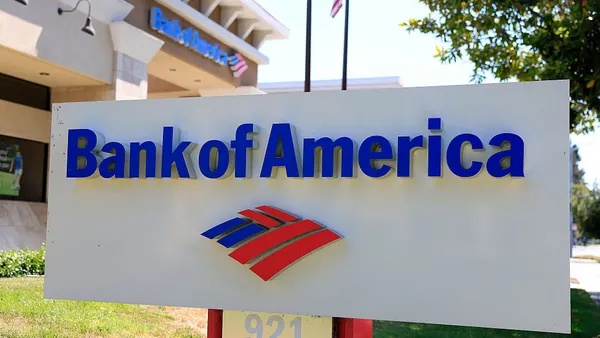Fiserv's application for a special banking charter in Georgia has been approved, the state’s department of banking and finance said Friday.
The Brookfield, Wisconsin-based payments company will now have direct access to card networks, and will no longer need to partner with banks to process credit card transactions. The state approved the charter Sept. 27, it said in a bulletin.
The payments processor, asked the Georgia agency for a merchant acquirer limited purpose bank charter, which gives the firm the right to authorize, settle and clear payment transactions for merchants. Fiserv disclosed that it had applied for the charter in January.
Card network behemoth Visa didn’t immediately respond to a question about its willingness to work with Fiserv in its new capacity.
Mastercard appears open to the idea.
“We are currently reviewing the proposed charter and its implications,” a spokesperson for Mastercard said in an email. “We have not yet made a decision regarding the potential approval of such entities within our network.”
A Fiserv spokesperson did not immediately respond to a request for comment.
The company has a significant presence in Georgia, given its office in the Atlanta suburb of Alpharetta.
An Israeli company is the only other business that has applied for the special Georgia charter since it was first offered in 2012. That company was formerly known as Credorax, but changed its name to Finaro and has since been acquired by the digital payments firm Shift4.
The Georgia agency approved the Credorax application, but card networks refused to work with that company, said James Stevens, co-leader of the financial services industry group at the law firm Troutman Pepper.
Any company that wants to operate as a bank needs approval from state and federal regulators, Stevens said Thursday.
Card networks like Visa and Mastercard rely on banks to manage risk, and they trust companies that have been through those government approvals, he said.
Fiserv’s charter approval may spur more payments players to seek the same privilege, Stevens said.
“This may open the flood gates from an application standpoint,” he said.












